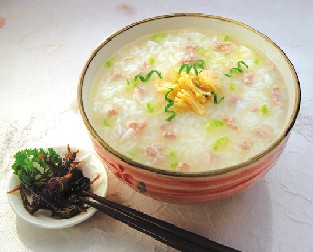A
lot of people that I encounter here don't believe I'm American. They
comment on how i resemble someone of Chinese or Japanese descent and
when I inform them that my parents are Chinese, they think I come
from a mixed background. I've encountered several individuals here
who call America, “the melting pot”, but they don't grasp the
true meaning of what they're saying. To many people, Americans need
to fit a certain look and if a person doesn't fit that bill, they
cannot be American.
 |
| I look like wonder woman....how am i not American? |
At
the same time, coming from a Chinese family has made certain aspects
of living in Senegal easier. In this post, I will outline a few
things that made my transition easier. I'm not trying to claim that
these items are exclusive to my ethnicity (because they aren't), but
they're things I've observed and felt.
First
of all, eating rice daily is not out of the ordinary for me. When we
first arrived in country, other volunteers would complain about the
amount of rice they were eating, but I loved it. Growing up, I ate
rice almost every single day of my life, so this was not a far jump.
The rice wasn't accompanied by several dishes and we all ate out of a
communal bowl, but it was familiar. I remember saying to someone
that rice was a comfort and that person giving me a bewildered look.
One dish, Gosi, a rice porridge, is a polarizing food among
volunteers (either they love it or hate it...most people despise it).
To many, it has a weird texture and they can't wrap their taste buds
around it, but to me, it's Senegalese congee. Congee, a rice
porridge that reminds me of sick days or lazy sundays, was something
I would make in college that reminded me of home. One time when I
was sick in village, my mom made me gosi and I nearly cried. Rice,
it does a body good.
My
host mom and my grandmother have similar phone styles. They both
talk loudly into the phone instead of speaking in a normal tone.
It's adorable and my brother thinks it's hilarious that our mom and
my grandmother do the same thing (he comments on it every time she's
on the phone). In my opinion (and the opinion of many other
volunteers), Pulaar is a much gentler sounding language than Woloof.
Much like how Madarin sounds more melodic than Cantonese. When
you're in a Catonese dominated dim sum restaurant at the peak of
lunch hour, the din often sounds slightly angry, but that's the
nature of the language- it sounds harsh and because people talk so
loudly, it's easy to misconstrue it as anger. Same with Woloof, what
could be a normal conversation on a bus in Dakar sounds like a heated
argument between two people. I didn't take me long to make that
connection and once I did, I just assumed that was how people talked
and wasn't worried about fights breaking out in buses.
I
eat weird food, but that doesn't make me weird, it makes me Chinese!
Just look at our dim sum carts (if you couldn't tell, i'm missing dim
sum)... we have chicken feet (yum!), pigs blood cooked with chives
(not as weird as it sounds- it's like tofu, with a slight metallic
taste), a beef mixture with mysterious parts (may or may not include
tongue and stomach), and you can order a clay pot with
rice and frog (seriously, it tastes like chicken). I've grown up
with these foods and I guess it has made me an adventurous eater.
Nothing really fazes me and I'm willing to try anything once. That
has definitely been an asset to me here, especially during holidays.
On holidays, the families go all out and cook meat (especially Tabaski aka festival of the sheep). They don't waste anything and
that scares a lot of volunteers. I don't love the way that they cook
the food, but I don't need to run away from it (that is until day
three, when there's still leftover meat and no refrigeration). There
is also the case of the salted dried fish. I don't mind it and I
think it adds flavor to a meal that is mainly flavored by MSG. Most
volunteers in country hate it with a passion and I don't blame them;
it's weird if you're not used to it. At home, my grandmother used to
rehydrate salted dried fish (yes, it was of a better quality) with a
dash of oil and a lot of ginger by steaming it in the rice cooker (so
delicious). In restaurants, you could order salted fish and chicken
fried rice or have it in your congee- definitely something from my
childhood. Lastly, we have the world of volunteers. We go out in
Dakar, where I can order sea urchin (it's so fresh here) and the
black spikes scare some, but it's such a treat. Or we go out in
Thies and I can order frog legs and escargot. Some may find it
strange, but I love it!
There are other things like the high level of
gossip within families, the large extended families, huge family gatherings for
events such as weddings, and highly ritualized ceremonies. I can sit here and
draw parallels between a lot more events and practices, but I don't want to
bore you. Off to cook some congee!
Peace



No comments:
Post a Comment